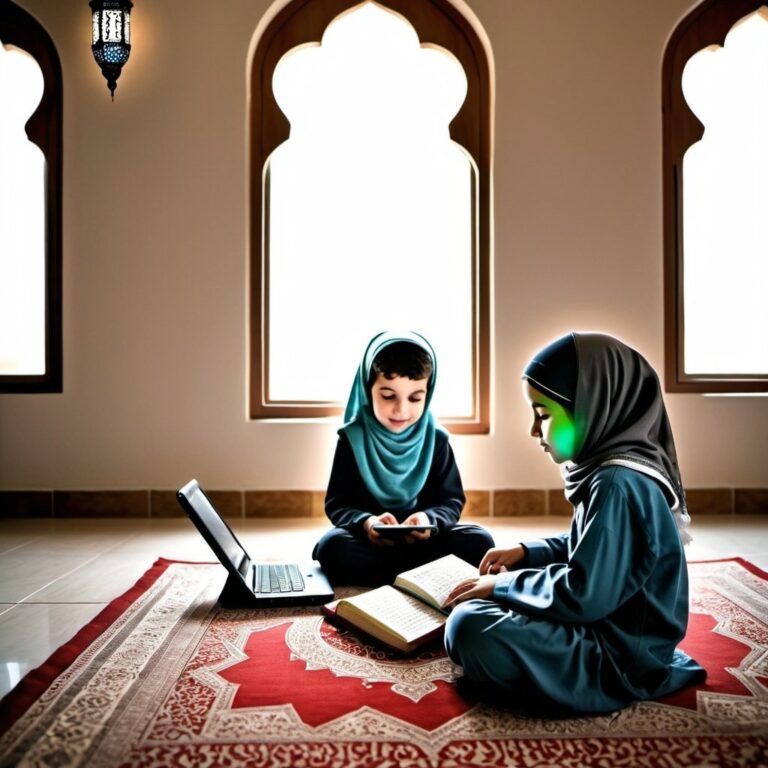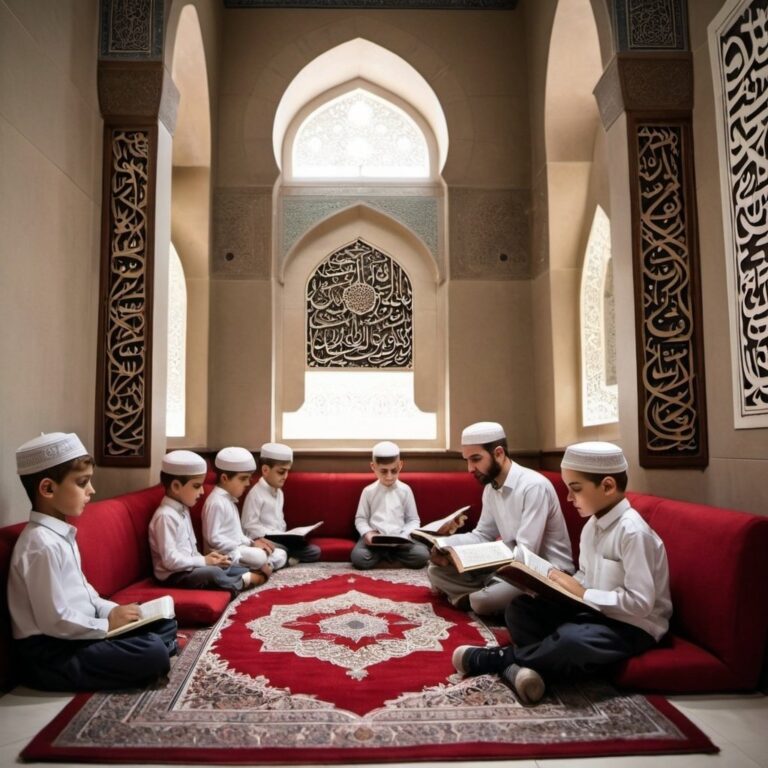The Journey of a Lifetime: Understanding the Significance of DhulHijjah and Arafah Day
DhulHijjah, the 12th and very last month of the Islamic calendar, holds big importance for Muslims international. It is a time of worship, mirrored image, and spiritual rejuvenation. Among the numerous critical days in this month, Arafah Day stands proud as one of the most sacred and spiritually profitable. In this blog submit, we are able to explore the profound importance of DhulHijjah and Arafah Day, delving into their historical, spiritual, and contemporary relevance for Muslims, inclusive of those embarking at the Hajj pilgrimage and those looking at from afar.
The Month of DhulHijjah: A Time of Spiritual Renewal
DhulHijjah is called the “Month of Pilgrimage” because it is during this time that Muslims from round the world collect in Mecca to perform the Hajj, one of the Five Pillars of Islam. This sacred pilgrimage, obligatory for each Muslim with the approach to undertake it, represents the culmination of personal piety and devotion.
The First Ten Days: A Period of Great Blessings
The first ten days of DhulHijjah are considered the most blessed days of the year. These days are a time for improved prayer, fasting, and acts of charity. According to Islamic subculture, correct deeds accomplished throughout in recent times are substantially rewarded, making it a duration of gigantic non secular opportunity for Muslims.
The Sacred Pilgrimage: Hajj
The Hajj pilgrimage is a as soon as-in-a-lifetime journey for Muslims who can physically and financially manage to pay for it. It is a profound act of worship that involves a sequence of rituals achieved over numerous days. Pilgrims don easy white clothes called Ihram, symbolizing purity and equality earlier than God. The Hajj fosters a deep feel of team spirit among Muslims as tens of millions collect in a show of devotion and submission to Allah.
The Historical and Religious Importance of Arafah Day
Arafah Day, which falls on the 9th day of DhulHijjah, holds a special area in Islamic lifestyle. It is an afternoon of sizeable non secular significance, in particular for the ones acting Hajj. But its importance extends past the pilgrims to all Muslims worldwide.
The Day at Mount Arafat
On Arafah Day, pilgrims collect at the plain of Arafat, about 20 kilometers from Mecca. This accumulating is the climax of the Hajj pilgrimage. Pilgrims spend the day in prayer, supplication, and mirrored image, in search of forgiveness and mercy from Allah. The scene at Mount Arafat, with thousands and thousands of pilgrims standing in unison, is a powerful illustration of the unity and humility of the Muslim Ummah.
The Sermon of the Prophet Muhammad (PBUH)
One of the most defining moments in Islamic history occurred on Arafah Day while Prophet Muhammad (PBUH) brought his Farewell Sermon for the duration of his very last pilgrimage. This sermon encapsulated the middle standards of Islam, emphasizing justice, equality, and the significance of adhering to the teachings of the Quran and Sunnah. It served as a guiding mild for Muslims, outlining their obligations and obligations.
A Day of Forgiveness and Liberation
Arafah Day is likewise called the “Day of Forgiveness.” According to Islamic perception, Allah descends to the bottom heaven and extends His mercy and forgiveness to individuals who seek it truely. It is an afternoon whilst sins are forgiven, and hearts are purified. For non-pilgrims, fasting on Arafah Day is surprisingly advocated, as it’s miles believed to compensate for the sins of the previous year and the 12 months to come back.
Observances and Recommended Actions on Arafah Day
Arafah Day gives a completely unique possibility for Muslims to engage in acts of worship and devotion, no matter whether or not they are performing Hajj or not. Here are some of the observances and recommended actions for this sacred day.
The Significance of Fasting
For Muslims who are not performing Hajj, fasting on Arafah Day is exceptionally encouraged. Fasting on this day is believed to expiate sins and convey sizeable spiritual rewards. The Prophet Muhammad (PBUH) said, “Fasting on the Day of Arafah expiates the sins of the preceding 12 months and the coming 12 months.”
Engaging in Du’a and Dhikr
Du’a (supplication) and Dhikr (remembrance of Allah) are principal practices on Arafah Day. Muslims are advocated to spend the day in earnest prayer, searching for Allah’s forgiveness, steerage, and benefits. The day is also an possibility to recite Quranic verses and mirror on their meanings, deepening one’s reference to the divine.
Acts of Charity and Kindness
Acts of charity and kindness keep unique significance on Arafah Day. Muslims are recommended to provide generously to the ones in need, as acts of charity are in particular meritorious in the course of this blessed time. Helping others now not simplest blessings the recipients however additionally purifies the giver’s soul and earns Allah’s choose.
Personal Reflections and Stories from Arafah Day
The experience of Arafah Day is deeply personal and transformative for many Muslims. Here, we share a few heartfelt reflections and tales from the ones who’ve had the privilege of experiencing this sacred day firsthand.
A Pilgrim’s Journey: Arafah Day in Mecca
For pilgrims, Arafah Day is the top in their Hajj adventure. One pilgrim recounts, “Standing on the obvious of Arafat, surrounded via tens of millions of fellow Muslims, I felt an overwhelming feel of team spirit and humility. The air turned into packed with prayers and tears of devotion. It changed into a second of profound non secular awakening, wherein I felt certainly related to Allah and my faith.”
Fasting on Arafah Day: A Non-Pilgrim’s Experience
For non-pilgrims, fasting on Arafah Day is a deeply significant practice. One Muslim shares, “Fasting on Arafah Day continually feels special. It’s an afternoon of mirrored image and repentance. I spend the day immersed in prayer, looking for forgiveness for my beyond mistakes and hoping for a better destiny. It’s a reminder of the boundless mercy of Allah.”
A Global Connection: A Day of Unity
Arafah Day transcends geographical limitations, bringing Muslims from all corners of the sector collectively in a shared act of worship. One community chief displays, “Arafah Day reminds us of the global Muslim network. Whether we are in Mecca or heaps of miles away, we are united in our devotion to Allah. It’s an afternoon that strengthens our bonds and reaffirms our faith.”
The Global Impact and Unity Fostered by way of Arafah Day
Arafah Day isn’t handiest a time of private reflection but also a day of massive global significance. It fosters a experience of cohesion and team spirit amongst Muslims worldwide, reinforcing the ideas of network and spirituality.
A Day of Collective Worship
Arafah Day is a unique event in which tens of millions of Muslims engage in simultaneous acts of worship. This collective devotion serves as a effective reminder of the strength and team spirit of the Muslim Ummah. It transcends man or woman variations and brings Muslims collectively in a shared expression of faith.
Strengthening Community Bonds
The observances of Arafah Day, whether through fasting, prayer, or acts of charity, make contributions to the strengthening of community bonds. Muslims come together to support one another, extending kindness and compassion to those in want. This experience of community fosters a spirit of cooperation and mutual recognize.
A Source of Inspiration and Hope
Arafah Day serves as a source of thought and desire for Muslims international. It is a day when believers are reminded of Allah’s countless mercy and the promise of forgiveness. This message of desire encourages Muslims to attempt for righteousness and to are looking for advantageous alternate of their lives and communities.
Conclusion: Embracing the Spiritual Journey of Arafah Day
Arafah Day is a cornerstone of the Islamic religion, providing a unique opportunity for Muslims to deepen their reference to Allah, seek forgiveness, and renew their commitment to their faith. Whether experienced on the plains of Arafat or via private acts of devotion, Arafah Day is a time of profound non secular importance.
As we reflect on the historic and spiritual significance of Arafah Day, we are reminded of the enduring values of harmony, compassion, and devotion that outline the Muslim Ummah. Let us embody the spiritual journey of Arafah Day, drawing thought from its undying message and striving to live lives of faith and righteousness.
May Allah be given our prayers, forgive our sins, and manual us at the route of righteousness. Ameen.
FAQs AboutArafah Day
Q1: What is the importance of Arafah Day inside the Islamic calendar?
A1: Arafah Day, which falls on the ninth day of DhulHijjah, is one of the maximum sacred days inside the Islamic calendar. It is the climax of the Hajj pilgrimage and a day of profound non secular importance for all Muslims, marked through prayer, fasting, and searching for forgiveness.
Q2: What are the advocated movements for Muslims on Arafah Day?
A2: On Arafah Day, Muslims are encouraged to have interaction in prayer (Du’a), remembrance of Allah (Dhikr), fasting (for non-pilgrims), and acts of charity. These actions assist deepen one’s reference to Allah and earn religious rewards.
Q3: How does Arafah Day foster a experience of solidarity amongst Muslims?
A3: Arafah Day brings Muslims from round the sector together in simultaneous acts of worship, reinforcing the concepts of network and spirituality. Whether acting Hajj or watching from afar, Muslims are united of their devotion to Allah and their commitment to religion.
Q4: Can non-pilgrims observe Arafah Day, and if so, how?
A4: Yes, non-pilgrims can take a look at Arafah Day with the aid of fasting, carrying out greater prayers, reciting the Quran, and performing acts of kindness and charity. These practices permit non-pilgrims to take part within the non secular significance of the day and earn the benefits related to it.
Q5: Why is fasting on Arafah Day considered distinctly meritorious?
A5: Fasting on Arafah Day is taken into consideration highly meritorious because it’s far believed to expiate sins of the past year and the coming yr. This act of devotion permits Muslims to purify themselves, are seeking forgiveness, and renew their non secular commitment.
Q6: How does Arafah Day decorate one’s non secular growth?
A6: Arafah Day enhances one’s non secular increase by offering a dedicated time for mirrored image, repentance, and private prayer. The practices observed on this day assist Muslims draw closer to Allah, seek forgiveness, and sense a renewed feel of non secular reason and clarity.
Personal Testimonies: The Transformative Power of Arafah Day
The essence of Arafah Day is first-rate understood thru the non-public tales and reflections of those who’ve experienced its impact firsthand. These memories highlight the deep emotional and religious resonance of this sacred day.
Reaching New Spiritual Heights: An Account from a Youth
“As a younger Muslim, Arafah Day has constantly been a adventure of self-discovery for me. Fasting and attractive in non-stop prayer create a experience of peace and introspection this is difficult to describe. Each year, I sense extra connected to my religion and extra committed to living a righteous and meaningful life.”
Arafah Day: A Family Tradition
“Our circle of relatives has a subculture of waking up early on Arafah Day to wish collectively and mirror on the past 12 months. These moments of collective worship now not only enhance our own family bonds but additionally recharge our spiritual batteries. It is an afternoon all of us sit up for, because it brings us toward every other and to Allah.”
Integrating Arafah Day Practices Into Daily Life
While Arafah Day is a singularly essential day, its teachings and practices can be incorporated into every day life to preserve religious increase throughout the yr.
Daily Prayers and Reflection
Regular prayer and daily mirrored image can help preserve the feel of peace and cause that many revel in on Arafah Day. Setting aside time every day for non-public mirrored image facilitates keep one’s spiritual adventure on course.
Acts of Charity and Kindness
Integrating acts of kindness and charity into ordinary life can enhance the values and lessons of Arafah Day. Whether thru volunteering, donating to the ones in want, or truely imparting kindness to others, those moves assist perpetuate the spirit of compassion and community.
Seeking Forgiveness and Personal Growth
The practice of searching for forgiveness and striving for private increase ought to not be restricted to Arafah Day. Continually working on self-development and being mindful of one’s actions guarantees that the instructions discovered in this sacred day resonate all through the 12 months.
By incorporating those practices into daily lifestyles, Muslims can retain to construct upon the spiritual gains made on Arafah Day, fostering a sustained and deepened reference to their faith and with Allah.












